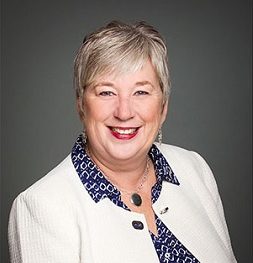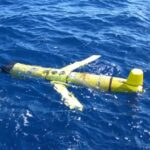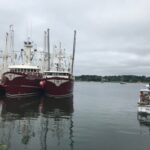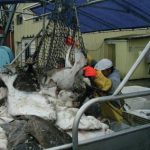“Everybody who has ever been a fisherman was drawn to it because of the freedom,” Erikson said. “The freedom to be your own boss, the freedom to be responsible to no one but yourself.” But money, freedom or even a viable living from the sea are in increasingly short supply on the B.C. coast, especially for young fishermen, said Jim McIsaac, vice-president of the Canadian Independent Fish Harvesters’ Federation. The number of people that can fish for a living is dropping because the cost of buying or leasing the Individual Transferable Quotas (ITQs),, The problem, McIsaac said, is that on the West Coast of Canada, the ownership of fishing licences and ITQs are not limited to fishermen.,, The federal government’s response,,, >click to read< 08:40
Tag Archives: individual transferable quotas (ITQs)
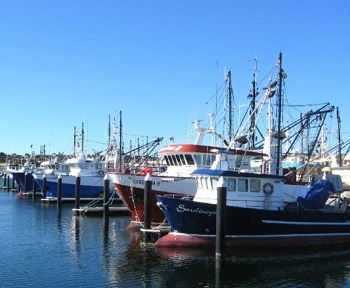
South Australia West Coast fishers reeling from priority species quota ITQ
Fishers on South Australia’s West Coast fishers who have invested hundreds of thousands in boats and licences since 2016 say they have received new quotas that only allow them to catch 87 kilograms of priority species annually. The State Government is rolling out what it calls individual transferable quotas (ITQs), part of its controversial Marine Scalefish Fishery,, for those with a catch history prior to 2016, particularly West Coast fishers where the average age was between 55 and 60, the formula was effectively a “golden handshake” to sell their quota and exit the industry. But he said it was anything but for younger fishers who bought into the industry after mid-2016,, Mr Schmucker said the industry would be “divided” as young operators scrambled to find another $150,000 to buy more quota while simultaneously competing with investors who were snapping up relinquished ITQs. >click to read< 09:10
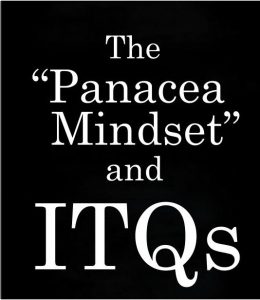
Why fisheries management is plagued by the panacea mindset
Fisheries management has often been characterized by regulatory policies that result in panaceas—broad based policy solutions that are expected to address several problems, which result in unintended consequences. An international research team shows how one size fits all policies like individual transferable quotas may be doomed from the onset, as these policies perpetuate “the panacea mindset.” The team calls for a more customized policy approach in a new piece in the Proceedings of the National Academy of Sciences. >click to read< 20:39
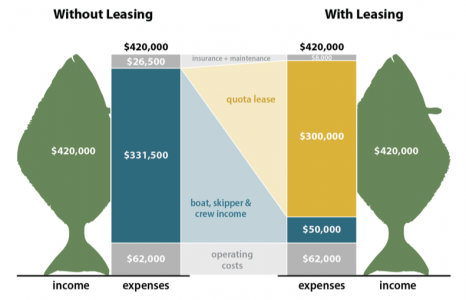
Owning the Owner Operator Policy
I read a blog post this week and the first paragraph rang so true to me: how most media stories would lead you to believe that the fishery is on its last legs and a dying industry when the opposite is in fact the case. What really caught my interest though was that there is a movement in the United States that if new fishing licences are issued, that they be to owner operators. At a time when Canada’s commitment to owner operator fisheries seems to be seriously in question, it’s interesting to see other countries advocating and moving in that direction. Owner operator fisheries means simply that the person who owns the boat and license is the one on the water fishing. While the official policy jargon in Canada will tell you that the Department of Fisheries and Oceans supports owner operator fisheries, the reality of policy decisions over the past two decades that I’ve been in the fishery have resulted in quite the opposite: management has moved towards individual transferable quotas (ITQ’s) which ultimately result in consolidation of access to the resource for a few (mainly) corporate interests who then hire people to fish. Read the story here. 10:16
Seth Macinko – Challenges facing small-scale fisheries – The Privatization Model, Ocean Grabbing
Rhode Island University Associate Professor Seth Macinko delivering his keynote speech to the delegates of the 6th World Forum of Fisher Peoples (WFFP) General Assembly. Published on Sep 2, 2014 09:34
Banking on Wealth? by Menakhem-Ben Yami
 Current trends in Western fisheries economics, as exemplified by the position of the World Bank, religiously promote free markets for fishing rights During the last decade, the World Bank (WB) has been showing an increasing interest in world fisheries. In 2005, the WB, along with key donors and stakeholders, created the Global Program on Fisheries (GPO-PROFISH) and in 2009, to amplify its work in fisheries, another global partnership with the fishing industry, the Alliance for Responsible Fisheries (ALLFISH). Read more here 13:37
Current trends in Western fisheries economics, as exemplified by the position of the World Bank, religiously promote free markets for fishing rights During the last decade, the World Bank (WB) has been showing an increasing interest in world fisheries. In 2005, the WB, along with key donors and stakeholders, created the Global Program on Fisheries (GPO-PROFISH) and in 2009, to amplify its work in fisheries, another global partnership with the fishing industry, the Alliance for Responsible Fisheries (ALLFISH). Read more here 13:37






